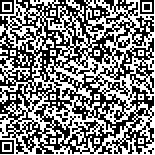| 摘要: |
| 近年来国内有关乡村旅游的理论研究主要集中在乡村旅游开发与发展现状研究、游客需求及动机研究、游客消费行为及满意度研究等方面,然而有关乡村旅游者数量分类及主要差异特征的研究依然缺少,不能有效地针对不同类型的乡村旅游者进行差异化的产品设计。因此,文章基于旅游动机、出游特征、个人信息等因素来构建辽宁省乡村旅游者数量分类的指标体系,运用描述性统计分析、因子分析、聚类分析及方差分析等方法分析样本数据。研究发现,因子分析将影响乡村旅游者出游的22个指标提取出9个公因子; 聚类分析对9个公因子进行聚类,结果显示,根据人工判别,在遗传距离18处将辽宁省乡村旅游者分为4类; 方差分析分析了不同乡村旅游者的主要特点,归类为娱乐消遣型、文化体验型、休闲观光型和康体养生型等4类市场; 旅游者在出游特征方面仅有旅行时间和旅游人均消费在文化体验型和康体养生型中表现出差异,旅行方式、出游季节、同游人数不存在显著差异,在个人信息方面,性别、年龄、文化程度、职业、经常居住地等不存在显著差异。 |
| 关键词: 乡村旅游数量分类旅游动机旅游者类型差异 |
| DOI:10.7621/cjarrp.1005-9121.20161130 |
| 分类号: |
| 基金项目: |
|
| STUDY ON NUMERICAL TAXONOMY AND DIFFERENCE ANALYSIS OF RURAL TOURISM——A CASE OF LIAONING PROVINCE |
|
Chen Ke, Zhang Qi, Ma Fawang, Dong Fengli
|
|
Shenyang Agricultural University,College of Economics and Management,Shenyang,Liaoning 110866, China
|
| Abstract: |
| In recent years, the theoretical research of domestic rural tourism mainly focused on the rural tourism exploitation, the current situation of the development of the rural tourism, the tourism needs and motivation of tourists, and the tourists consuming behavior and satisfaction, etc. However, few research focused on the tourist numerical taxonomy and the differentiation in product design. For this reason, this paper constructed the specific index system in the tourist numerical taxonomy of the rural tourism in Liaoning province, based on the tourists information of tourism motivation, characteristics of traveling and personal information and so on. What's more, this paper applied several mathematical analysis methods, such as descriptive statistical analysis method, factor analysis method, cluster analysis method, analysis of variance method and so on, to make a specific scientific analysis of the sample data. The results showed that factor analysis method will deeply affect the 9 factors extracted from the 22 indicators and have influence on tourists traveling in rural tourism. The rural tourists can be divided specifically into four categories in the genetic distance of 18 by using the method of system clustering analysis. The variance analysis method can analyze the main characteristics of different rural tourists, as a consequence, it divided the tourists into four specific types, i.e., the entertainment and recreation type, cultural experience type, relaxation and sightseeing type, and health and fitness protection type. The traveling characteristics of tourists had differences in two fields, i.e., the time of traveling and the average individual consume of tourists in the cultural experience type and the health and fitness protection. The ways of traveling, the season of traveling and the number of traveling people had no significant difference. Besides of that, the personal information, personal gender, personal age, personal degree of education, personal occupation, personal habitual residence, and so on, also showed no remarkable difference. |
| Key words: rural tourism numerical taxonomy tourism motivation tourists type difference |

